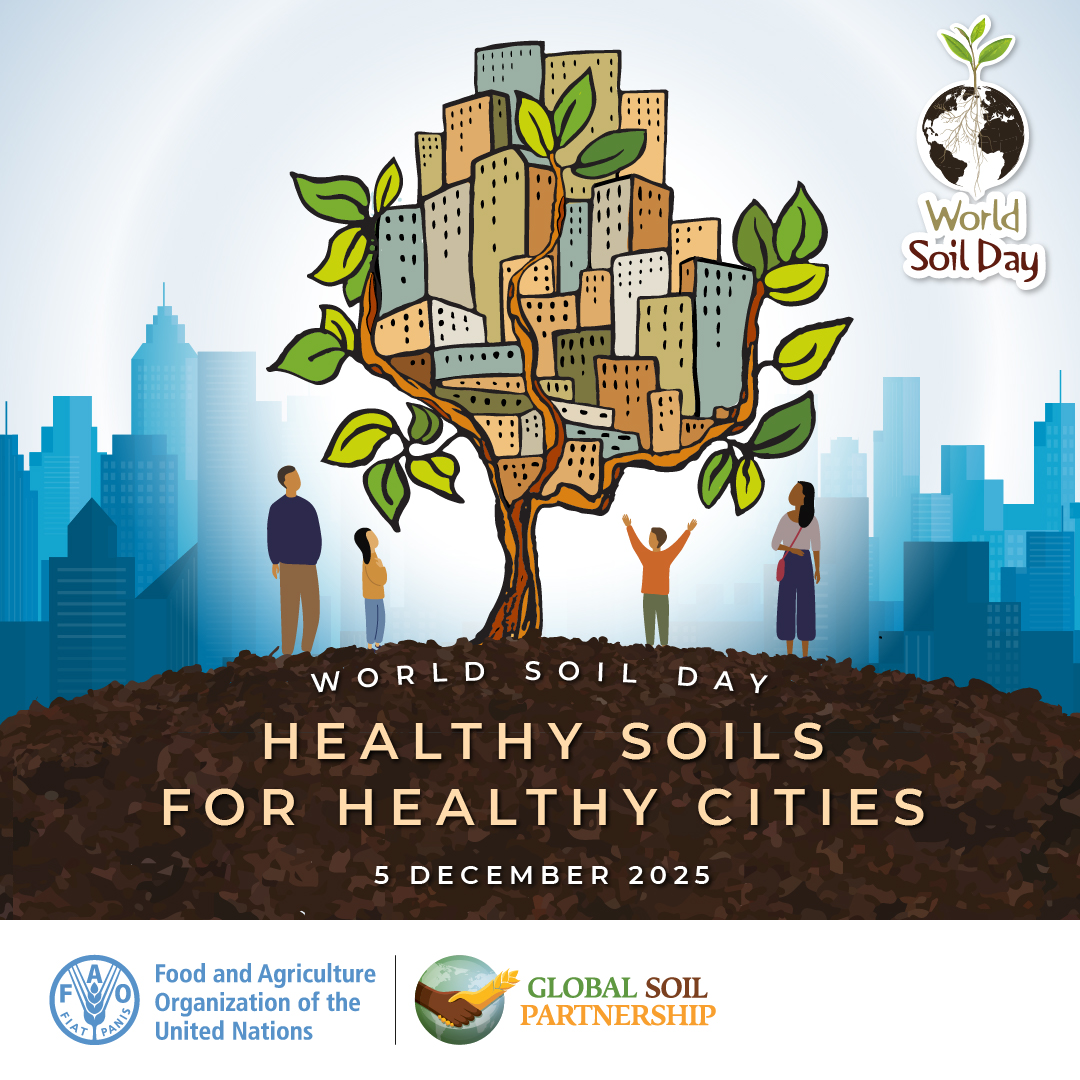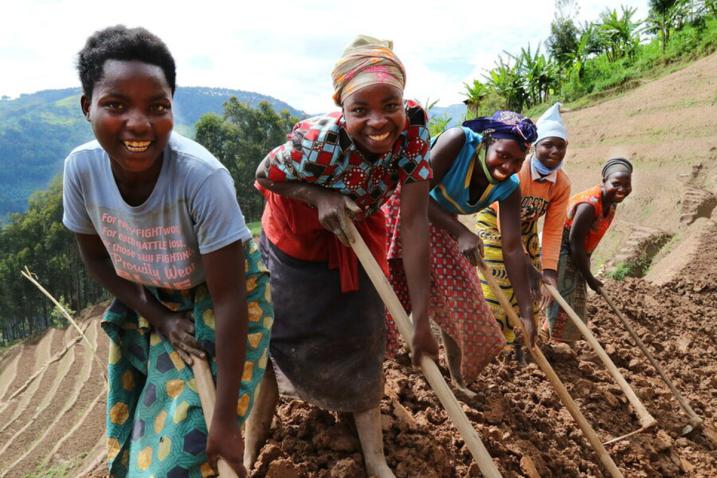Healthy Soils for Healthy Cities
Our planet’s survival depends on the precious link with soil. Over 95 percent of our food comes from soils. Besides, they supply 15 of the 18 naturally occurring chemical elements essential to plants.
However, in the face of climate change and human activity, our soils are being degraded. Erosion disrupts the natural balance, reducing water infiltration and availability for all forms of life, and decreasing the level of vitamins and nutrients in food.
Sustainable soil management practices, reduce erosion and pollution, and enhance water infiltration and storage. They also preserve soil biodiversity, improve fertility, and contribute to carbon sequestration, playing a crucial role in the fight against climate change.
But when we think about soil, we almost always associate it with the countryside and nature. We rarely stop to consider that urban soil is also fundamental.
This World Soil Day 2025 focuses on urban landscapes with the theme "Healthy Soils for Healthy Cities." Beneath asphalt, buildings, and streets lies soil that, if permeable and vegetated, helps absorb rainwater, regulate temperature, store carbon, and improve air quality. But when it's sealed with cement, it loses these functions, making cities more vulnerable to flooding, overheating, and pollution.
Therefore, this day invites everyone—from policymakers to citizens—to rethink urban spaces from the ground up, to build greener, more resilient, and healthier cities.

Get the message across!
FAO’s website is full of initiatives and materials to raise awareness and spread the message of this observance on different platforms. Find out about a multitude of worldwide events related to the importance of healthy soils.
Background of a decade celebrating soils
World Soil Day (WSD) is held annually on 5 December as a means to focus attention on the importance of healthy soil and to advocate for the sustainable management of soil resources.
An international day to celebrate soil was recommended by the International Union of Soil Sciences (IUSS) in 2002. Under the leadership of the Kingdom of Thailand and within the framework of the Global Soil Partnership, FAO has supported the formal establishment of WSD as a global awareness raising platform. The FAO Conference unanimously endorsed World Soil Day in June 2013 and requested its official adoption at the 68th UN General Assembly. In December 2013, the UN General Assembly responded by designating 5 December 2014 as the first official World Soil Day.
Did you know?
- It can take up to 1 000 years to produce just 2-3 cm of soil.
- Up to 58% more food could be produced through sustainable soil management.
- Agricultural production will have to increase by 60% to meet the global food demand in 2050.




